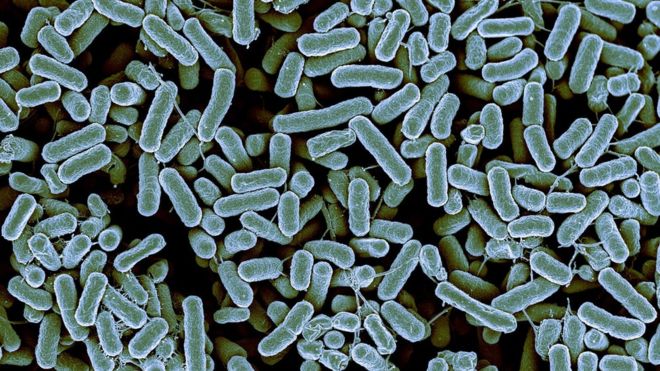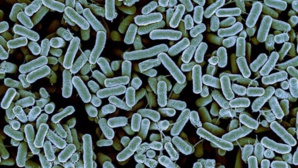Scientists experimenting with bacteria that live in the human body reported to the “Science Translational Medicine” that in a case study of “319 children” they exhibited “at higher risk of asthma” when four particular “types of bacteria were missing” in their body”.
Accordingly, experts are of the opinion that being exposed to “right” kind of bacteria at the “right time” can prevent “allergies and asthma”. Human body is home to various “bacteria, fungi and viruses” which even outnumbers human cells whereby they are almost ten against one and exercise a “huge impact on health”. The team of scientists working in this project came from the “University of British Columbia and the Children's Hospital in Vancouver”. Their microbiome observation period lasted two slots one for three months while another was for a year, wherein they concentrated on the risks of asthma on the children of three years old.
They conducted “wheeze and skin allergy tests” on the subjects and came to the conclusion that if a child does not get exposed to “four types of bacteria” such as “Faecalibacterium, Lachnospira, Veillonella, and Rothia (Flvr)” at the age of “three months”, is under a high risk zone of “developing asthma at the age of three”.
Moreover, the same four types of microbiomes were noticed on “one-year olds”, which suggests that “the first few months of life are crucial”. In an interesting turn of the experiment, a “bacterial cocktail” containing all the above mentioned four bacteria, were given to mice that were “previously germ-free”. Subsequently, it was observed that the “inflammation in the airways” of the “pups” of the above mentioned mice was reduced to some extent.
In the words of Dr Stuart Turvey, one of the research members:
"Our longer-term vision would be that children in early life could be supplemented with Flvr to look to prevent the ultimate development of asthma
"I want to emphasise that we are not ready for that yet, we know very little about these bacteria, [but] our ultimate vision of the future would be to prevent this disease."
If any human airways are sensitive to irritation or have inflammation, it can lead to asthma. In fact, cases revealed that the rates of asthmatic patients are on the rise almost every one in every eleven children suffer from asthma in the U.K.
The "hygiene hypothesis" gives one kind of explanation about the increment in asthma patients’ number; consequently it is suggested that children do not receive “enough” exposure to microbes which in turn calibrates “immune system” in order to differentiate between good and bad bacteria. The Caesarean birth being in vogue coupled with deprived mother’s milk, stops the flow of good bacteria into a newborn’s body, while antibiotics consummation during pregnancy or in early childhood can also alter the microbiome of the body. Dr Brett Finlay, a fellow researcher, recounts:
"[I was] surprised to realise that faecal microbes may be influencing things.
"What data's really starting to show these days is that the immune system gets itself set up in the gut and influences how it works everywhere else in the body."
University of Lausanne’s Dr Benjamin Marsland informed:
"For a number of years, exposure to microbes has been linked with protection against asthma, a classic example is growing up on a farm and drinking raw milk."
"This new study adds weight to these observations and supports the concept that there are certain developmental windows in early life, where it's really important to get the right signals.
"A common factor in all studies so far has been the microbiota, in fact making sure babies have the right bugs, at the right time, might be the best step towards preventing asthma and allergies."
While, U.K’s charity Asthma’s Dr Samantha Walker states:
"Asthma is a complex condition, and this research suggests that the delicate balance of gut bacteria in our bodies affects our immune systems and may have a role to play in why some people go on to develop asthma.
"However, much more research is needed to help understand what these findings mean in terms of providing advice for new parents, developing treatments and ultimately a cure."
References:
www.bbc.com
Accordingly, experts are of the opinion that being exposed to “right” kind of bacteria at the “right time” can prevent “allergies and asthma”. Human body is home to various “bacteria, fungi and viruses” which even outnumbers human cells whereby they are almost ten against one and exercise a “huge impact on health”. The team of scientists working in this project came from the “University of British Columbia and the Children's Hospital in Vancouver”. Their microbiome observation period lasted two slots one for three months while another was for a year, wherein they concentrated on the risks of asthma on the children of three years old.
They conducted “wheeze and skin allergy tests” on the subjects and came to the conclusion that if a child does not get exposed to “four types of bacteria” such as “Faecalibacterium, Lachnospira, Veillonella, and Rothia (Flvr)” at the age of “three months”, is under a high risk zone of “developing asthma at the age of three”.
Moreover, the same four types of microbiomes were noticed on “one-year olds”, which suggests that “the first few months of life are crucial”. In an interesting turn of the experiment, a “bacterial cocktail” containing all the above mentioned four bacteria, were given to mice that were “previously germ-free”. Subsequently, it was observed that the “inflammation in the airways” of the “pups” of the above mentioned mice was reduced to some extent.
In the words of Dr Stuart Turvey, one of the research members:
"Our longer-term vision would be that children in early life could be supplemented with Flvr to look to prevent the ultimate development of asthma
"I want to emphasise that we are not ready for that yet, we know very little about these bacteria, [but] our ultimate vision of the future would be to prevent this disease."
If any human airways are sensitive to irritation or have inflammation, it can lead to asthma. In fact, cases revealed that the rates of asthmatic patients are on the rise almost every one in every eleven children suffer from asthma in the U.K.
The "hygiene hypothesis" gives one kind of explanation about the increment in asthma patients’ number; consequently it is suggested that children do not receive “enough” exposure to microbes which in turn calibrates “immune system” in order to differentiate between good and bad bacteria. The Caesarean birth being in vogue coupled with deprived mother’s milk, stops the flow of good bacteria into a newborn’s body, while antibiotics consummation during pregnancy or in early childhood can also alter the microbiome of the body. Dr Brett Finlay, a fellow researcher, recounts:
"[I was] surprised to realise that faecal microbes may be influencing things.
"What data's really starting to show these days is that the immune system gets itself set up in the gut and influences how it works everywhere else in the body."
University of Lausanne’s Dr Benjamin Marsland informed:
"For a number of years, exposure to microbes has been linked with protection against asthma, a classic example is growing up on a farm and drinking raw milk."
"This new study adds weight to these observations and supports the concept that there are certain developmental windows in early life, where it's really important to get the right signals.
"A common factor in all studies so far has been the microbiota, in fact making sure babies have the right bugs, at the right time, might be the best step towards preventing asthma and allergies."
While, U.K’s charity Asthma’s Dr Samantha Walker states:
"Asthma is a complex condition, and this research suggests that the delicate balance of gut bacteria in our bodies affects our immune systems and may have a role to play in why some people go on to develop asthma.
"However, much more research is needed to help understand what these findings mean in terms of providing advice for new parents, developing treatments and ultimately a cure."
References:
www.bbc.com






